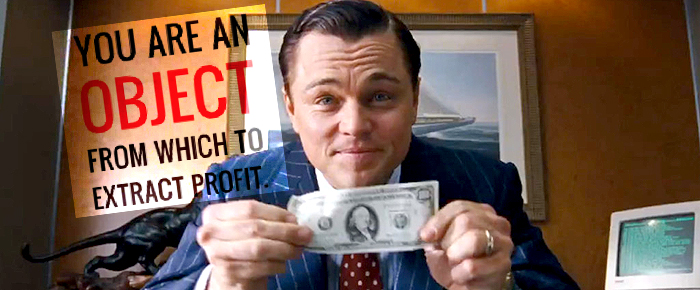
By Haddon Libby
Some financial advisors and insurance agents make used car salesmen look like a bunch of Mother Theresas (no disrespect to used car salesmen intended).
Why?
These “trusted” advisors sell variable rate or indexed annuities to the elderly. They sell underperforming mutual funds because the commissions are higher. They sell the classes of mutual funds that have the highest upfront payments without regard to client needs. They sell long dated bonds in order to earn the maximum commission when that investment does not serve their client’s best interest. On top of this, they lie about or obfuscate the real total costs associated with your investments.
In general, many investment advisors act like your best friend while they are picking your pocket.
After nearly seven years of negotiations with Wall Street, the Obama Administration is coming out with partial consumer protections of investment accounts. In some but not all cases, your financial advisor must now put your best interests ahead of their own.
What a controversial idea, huh?
As proposed, consumer protections only apply to retirement accounts and come with loopholes for the big Wall Street firms. These virtually toothless changes were initially opposed by the Wall Street firms who manage most investment accounts.
While these watered down rule changes could save investors $17 billion a year, best estimates are that the changes will prevent no more than $4 billion in excessive fees and expenses charged by investment advisors and insurance agents.
If the Obama Administration wanted to truly protect consumers, there were some very simple fixes that they could have included.
You may not know it but your investment advisor and/or their firm receive compensation from the mutual funds that they recommend to you. Some funds pay more than others. Typically, the poorer performing funds pay more to your investment advisor than the better performing funds. If the Administration wanted to protect you, they would simply require investment advisors to disclose these arrangements and tell you about the monies paid to them as well as the expenses that the mutual funds cover for your advisors and their firms. Better yet, they could prohibit these types of payments all together.
The rule changes mean that your investment advisor is now going to have to enter into a “Best Interest Contract” with you pledging to put your interests ahead of their own as it relates ONLY to your retirement accounts. Wouldn’t it be easier simply to ban the potential conflicts?
As for the fees and expenses that your advisor charges, they are supposed to make it easier for you to figure out what you are paying for. The challenge will continue to be that Wall Street likes to hide what they actually charge. The typical mutual fund has upfront sales charges, redemption fees, operating expenses, distribution (12b-1) fees and other expenses. In many cases, your advisor will sell you a fund of funds which means that you may be paying fees to your advisor, the mutual fund that you hold as well as the mutual fund that your mutual fund holds. Total fees can easily exceed 3% per year yet many investors believe that they are paying far lower fees.
If you want a review of your portfolio or one of a friend or family member done by an honest and impartial third party, email me and I will help out. I mean it. I have been an investment banker for banks, a private banker and own my own investment advisory practice and know how to spot abuses.
I’m tired of people being ripped off by their “trusted advisors” and you should be too.
While Obama Administration efforts were no more than window dressing, you can be a difference maker by independently verifying things for truthfulness and accuracy.
Haddon Libby is Managing Partner at Winslow Drake, an investment advisory practice and co-founder of ShareKitchen and can be reached at hlibby@winslowdrake.com.











































